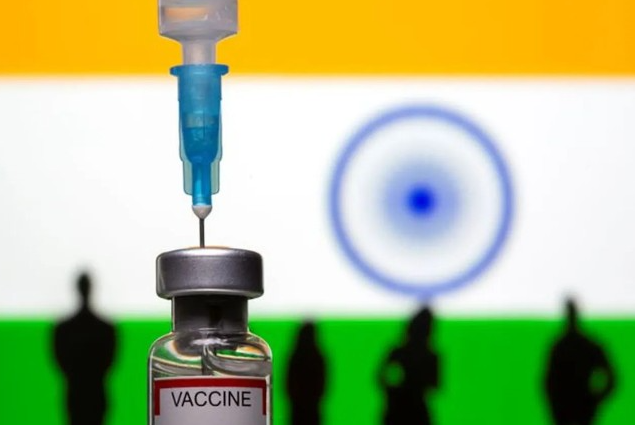India's Vaccine Policy Impacting Global Health Governance
Total Views |
-Kedar Naik
India's vaccine policy at the global level is an intricate interplay of diplomacy, public health imperatives, economic considerations, and strategic positioning. With a burgeoning population and a history of vaccine production and distribution, India's role in global vaccine initiatives has become increasingly prominent. This essay will delve into India's vaccine policy, exploring its evolution, key components, challenges, and impact on the global stage.
India's vaccine policy at the global level is an intricate interplay of diplomacy, public health imperatives, economic considerations, and strategic positioning. With a burgeoning population and a history of vaccine production and distribution, India's role in global vaccine initiatives has become increasingly prominent. This essay will delve into India's vaccine policy, exploring its evolution, key components, challenges, and impact on the global stage.
Historical Context and Evolution:
India has a long history of vaccine production dating back to the establishment of the Central Research Institute (CRI) in 1905. Over the decades, India has emerged as a major player in vaccine manufacturing, supplying essential vaccines to not only its population but also to other developing countries. However, it was in the 1970s that India made a significant stride in its vaccine policy with the establishment of the Expanded Programme on Immunization (EPI), aimed at providing universal access to immunization.

Key Components of India's Vaccine Policy:
Vaccine Production and Distribution: India's vaccine policy revolves around its capacity to produce a wide range of vaccines at affordable prices. The country's robust pharmaceutical industry, coupled with its skilled workforce and low production costs, has positioned India as the 'pharmacy of the world.'
Global Partnerships: India actively engages in partnerships with international organizations such as the World Health Organization (WHO), GAVI (the Vaccine Alliance), and UNICEF to ensure equitable access to vaccines worldwide. Through initiatives like the Global Alliance for Vaccines and Immunization (GAVI), India has contributed to expanding access to life-saving vaccines in low-income countries.
Diplomacy and Bilateral Agreements: India's vaccine diplomacy plays a crucial role in strengthening bilateral relations and promoting its geopolitical interests. The country often provides vaccines as part of aid packages to other nations, enhancing its soft power and fostering goodwill.
Research and Innovation: India invests in research and development to enhance vaccine efficacy and affordability. Institutions like the Indian Council of Medical Research (ICMR) and the Department of Biotechnology (DBT) collaborate with domestic and international partners to develop new vaccines and improve existing ones.
Regulatory Framework: India's regulatory framework ensures the safety, quality, and efficacy of vaccines produced within its borders. The Central Drugs Standard Control Organization (CDSCO) oversees the approval and regulation of vaccines, adhering to international standards.
Challenges and Controversies:
Supply Chain Issues: Despite its capacity for vaccine production, India faces challenges in the distribution and last-mile delivery of vaccines, especially in remote and rural areas. Infrastructure gaps and logistical hurdles hinder the efficient dissemination of vaccines to those in need.
Intellectual Property Rights: India has been a vocal advocate for the relaxation of intellectual property rights (IPR) related to vaccines, arguing that it impedes access to affordable vaccines, particularly in developing countries. This stance has sometimes led to tensions with pharmaceutical companies and developed nations.
Equity Concerns: While India has made significant strides in vaccine coverage domestically, disparities persist within the country, with marginalized communities often facing barriers to access. Addressing these inequities remains a challenge for India's vaccine policy.
Vaccine Hesitancy: Like many countries, India grapples with vaccine hesitancy fueled by misinformation, cultural beliefs, and lack of trust in the healthcare system. Overcoming vaccine hesitancy requires targeted communication strategies and community engagement efforts.
Impact on the Global Stage:
India's vaccine policy has had a profound impact on the global stage, shaping public health agendas, fostering international cooperation, and addressing global health challenges. Some notable impacts include:
COVID-19 Response: During the COVID-19 pandemic, India emerged as a key player in the global vaccination effort. The country's vaccine manufacturing capabilities were instrumental in supplying COVID-19 vaccines to low- and middle-income countries through initiatives like COVAX.
Polio Eradication: India's successful polio eradication campaign, achieved through mass vaccination drives and innovative strategies, serves as a testament to the country's commitment to global health security.
Health Diplomacy: India's vaccine diplomacy has bolstered its diplomatic relations with neighboring countries and strategic partners. By providing vaccines to countries in need, India has enhanced its soft power and influence in the international arena.
Economic Opportunities: India's vaccine exports contribute to its economic growth and global competitiveness. The country's vaccine manufacturing industry generates revenue, creates jobs, and stimulates innovation, further cementing its position as a pharmaceutical powerhouse.
Future Directions: Looking ahead, India's vaccine policy will continue to evolve in response to emerging challenges and opportunities.
Key areas for future focus include:
Technology Transfer and Capacity Building: India can play a pivotal role in transferring vaccine manufacturing technology to other countries, particularly in Africa and Southeast Asia, to enhance global vaccine production capacity and resilience.
Research and Development: Continued investment in research and development will enable India to develop novel vaccines, address emerging infectious diseases, and strengthen its position as a leader in vaccine innovation.
Health Systems Strengthening: India must prioritize strengthening its healthcare infrastructure, particularly in rural and underserved areas, to ensure equitable access to vaccines and improve overall health outcomes.
Global Health Governance: India can leverage its growing influence in global health governance forums to advocate for policies that promote vaccine equity, address health disparities, and advance the global health agenda.
In conclusion, India's vaccine policy at the global level is multifaceted, encompassing production, distribution, diplomacy, and innovation. While the country faces various challenges, its contributions to global health security and equity are undeniable. By continuing to prioritize vaccine access, research, and collaboration, India can further enhance its impact on the global stage and contribute to a healthier, more resilient world.

